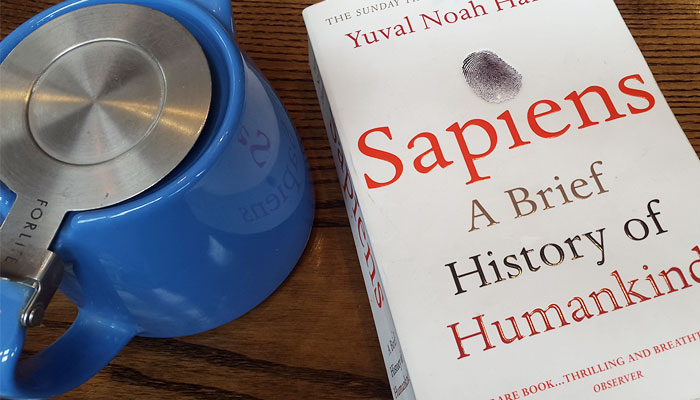This is one of these posts where I jump around a bit — but I just wanted to write down some of my thoughts.
I was recently on a yoga course learning to teach pre and post natal yoga. I’ve only been teaching yoga for a few years, but it always amazes me whenever I attend one of these courses how vast yoga is as a subject (and how much I don’t know).
This sometimes leads me to feeling inwardly defensive when I don’t know something that I feel I should know. For example, I’ve delved a lot into the really ancient history of yoga, but not so much the modern history. It might not sound like such a big deal, but naturally when you’re into a subject, you want to know as much as possible.
Putting yoga aside, I want to just remind myself that I’m probably never grasping anything in its entirety the first (or ever!) time I listen, watch, read, engage… with it.
Do I really want to be certain about everything?
I’ve been thinking about this ever since reading the book Three Daughters of Eve. I used to read fiction constantly but over the last few years I’ve been reading a lot of theory and non fiction books. However, Three Daughters of Eve was a recommendation which I loved.
The book made me think about how important it is to be OK with not knowing everything, and remaining open or undecided. It focused a lot on religion, but it made me think about everything in life where my opinions seem to be fixed. I want to be in a position where I can have my opinions, but to also realise that just because I think X it doesn’t mean I’m right. In many ways, I welcome being around people totally different to the way I view the world.
Best book I’ve read this year — Sapiens: A Brief History of Humankind
This desire to remain open and not so obsessed with thinking I’m right comes from reading Sapiens: A Brief History of Humankind which I read recently. I loved this book (it might be my new favourite book) because it felt like science was finally giving me some answers, or made me see there are no answers.
For years I’d always wondered what the most natural way is for humans to live. Should we eat meat or be vegan? What kind of a society is the ‘right’ or natural way? Is it more natural to be monogamous or polyamorous?
I’m always meeting or listening to people on podcasts with opposing views who seem to think they’ve found the ‘right’ way to live, behave in relationships, or they’ve found the perfect ethical milk to drink.
Reading Sapiens gave me some answers — mainly that there is no one natural way. It’s probably the most obvious answer I’ve ever been given. We create our truths — according to Sapiens — through the shared stories we create together, and over time these shared stories become our version of reality. If enough people believe in the same story, it helps to further reinforce what that group of people believe. This is my interpretation anyway — it might be different in a few years.
Final thoughts
When I reflect back on starting Thought Brick with my brother almost five years ago now, I would read books on blogging and creating websites where people would say you need to dominate a niche, write at least one article a day, and become the authority in that area. I ended up churning out all these articles with cringey titles like 10 top tips to improve your…
I remember thinking at the time how hard it would be because I just didn’t know enough. Right now, I’d rather remain in the position of being open to learning from many different sources, enjoying the process as I learn and sharing my thoughts along the way, rather than put across the false belief that I know it all. Can the art of ‘not knowing’ be my new niche?
So the final reminder to myself is — never think you know everything (shouldn’t be too hard as I only average about one to two questions on a pub quiz), and always be open to learning from everyone and everything.
P.S. This post contains Amazon affiliate links which means if you buy one of the books listed on this page, I will make a small commission.

